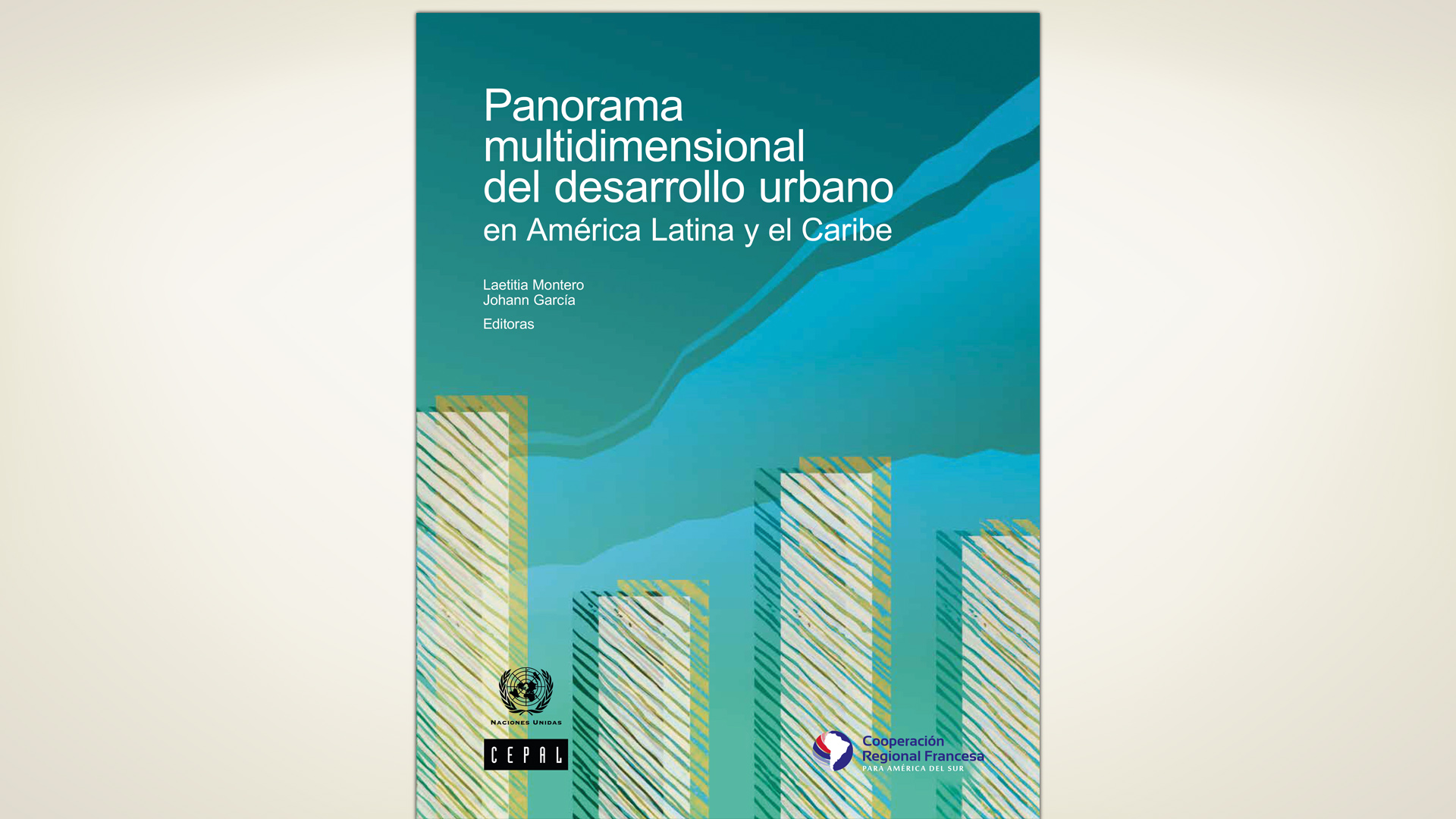Press Release
A new book by the Economic Commission for Latin America and the Caribbean (ECLAC) analyzes the region’s urban development from a comprehensive perspective, weighing social, economic, environmental and governance-related aspects.
The Multidimensional Overview of Urban Development in Latin America and the Caribbean (in Spanish), prepared by ECLAC’s Sustainable Development and Human Settlements Division, affirms that cities are strategic places and spaces for the implementation of public policies enabling Latin American and Caribbean countries to move toward sustainable development.
More than 80% of the region’s population is urban, and cities concentrate much of its economic, political and administrative power.
The publication is made up of five chapters that address aspects related to demographics and to urban development. They highlight the opportunities arising from economies of agglomeration and population concentration. In addition, they point to the challenges for improving the habitability of human settlements in the region.
Although one of the main consequences of the urbanization process during previous decades was an expansion in metropolises, recently there has also been highly dynamic growth and expansion in medium-sized intermediate cities.
These new urbanization patterns are intertwined with demographic growth that is decelerating, with an overall ageing of the population, the document explains.
The publication indicates that the region is experiencing a double transition, both urban and demographic, which represents an opportunity and a challenge for Latin America and the Caribbean to plan and properly manage a more sustainable urban development focused on closing the gaps of inequality and inequity in cities.
The positive and negative externalities that cities produce depend on the development model and paradigm that sustain the policies, programs and projects in which they develop, the publication adds. In this way, the achievement of sustainable urban growth is relevant to strengthening a model of sustainable development in the region’s countries.
The document recalls that the 2030 Agenda for Sustainable Development, adopted by the United Nations General Assembly in September 2015, specifically includes an urban objective for the first time. Sustainable Development Goal 11 proposes “making cities and human settlements inclusive, safe, resilient and sustainable,” which highlights the issue of sustainability from a comprehensive and fully territorial perspective.
The New Urban Agenda, adopted in Quito in October 2016, adds to this scenario. It establishes the need to activate concrete processes to implement this new urban development paradigm. In the region, this translates into the drafting of a Regional Action Plan that will serve as a reference for proposing new urban policies at a national and subnational level in countries of the region.
ECLAC’s new publication was written based on the South American Colloquiums on Metropolitan Cities (MSUR), held in 2015 and 2016, and on the Regional Report on Latin America and the Caribbean prepared for Habitat III. Its launch will take place one year after the third United Nations Conference on Housing and Sustainable Urban Development (Habitat III) and in the run-up to the Conference of Cities, which will be held at ECLAC’s headquarters in Santiago, Chile in October.
This material seeks to contribute so that decision-makers, academics and the general public can recognize the dynamics underlying current urbanization trends in the region.



